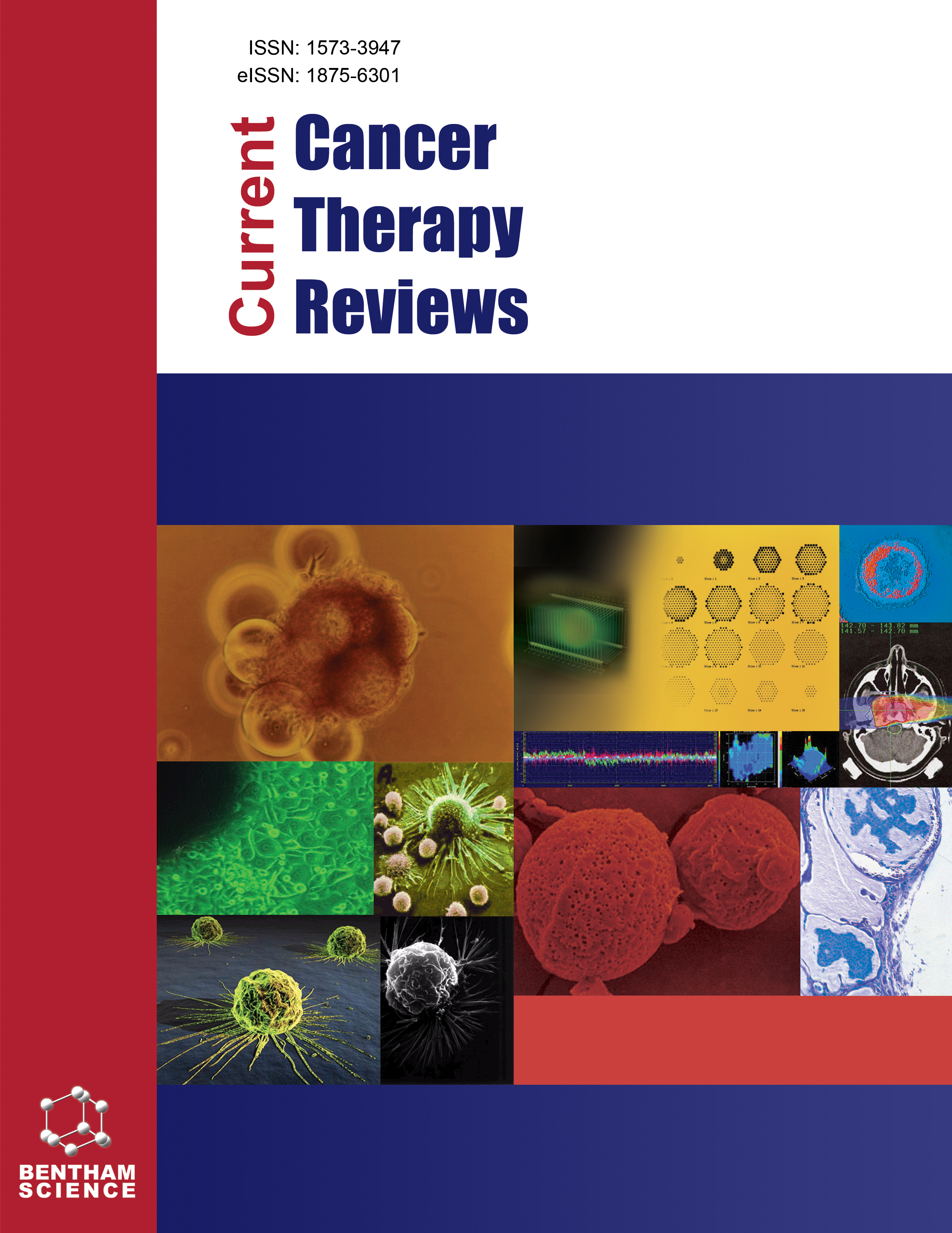-
oa Editorial from EIC
- Source: Current Cancer Therapy Reviews, Volume 8, Issue 1, Feb 2012, p. 1 - 1
-
- 01 Feb 2012
Abstract
Current Cancer Therapy Reviews is now in its 8th year and relatively well known (not least for the brilliant collage at the front cover). According to the Cancer Statistics, 2011, published in the American Cancer Society's journal: “CA: A Cancer Journal for Clinicians”, a total of 1,596,670 new cancer cases and 571,950 deaths from cancer are projected to occurr in the U.S. in 2011. These numbers rise some skepticism regarding whether clinicians and scientists are winning the “War on Cancer”, a health metapher, introduced by U.S. President R. Nixon in his State of the Union speech, and he signed later on December 23 the National Cancer Act of 1971. Yes, we have made progress over the last 40 years in the war against cancer. Maybe not as much as we all hoped. The major killer cancers such as colon, breast and prostate steadily decline, which might have to do with better methods of early detection and treatment. The search for the ultimate weapon, the magic bullet that will “cure” cancer, is unlikely to be a single “cure for cancer”. There are more than 200 recognized types of cancer and their causes are myriad. Within a medial oriented scientific society and in a period of a high tide for clinical cancer research, it becomes increasingly important to communicate in a timely manner the advances in translational cancer research, alongside with clinical findings. Current Cancer Therapy Reviews will become a venue and forum for scientists and clinicians alike - above all from those countries just opening the doors to excellent clinical cancer research - to advocate their development of novel strategies, including academia, biotechnology/pharmaceuticals, their National Cancer Institutes and funding agencies. In order to meet our objects, the review process is paramount to provide fair reviews - and we are committed to rapid, rigorous, and constructive reviews, even to attract best articles from clinicians who are working under more laborious conditions to put together their clinical results as clinicians in the Western world might to experience. A particular emphesis of Current Cancer Therapy Reviews will be to create relationship with the worldwide community of clinicians in order to reflect the rapid international sharing of clinical informations and ultimately to promote -- also in and for different cultures and societies - the advances published as reviews or originale articles in Current Cancer Therapy Reviews. As Editor - in Chief, I am very grateful to all, who contribute to the success of this journal by writing reviews, originale articles and to serve as peers. I invite the readers, the authors and the reviewers of the journal to join the Editors and Editorial Advisory Board Member to pursue through the individual publishing policy of this journal our ultimate goal of conquering cancer.


